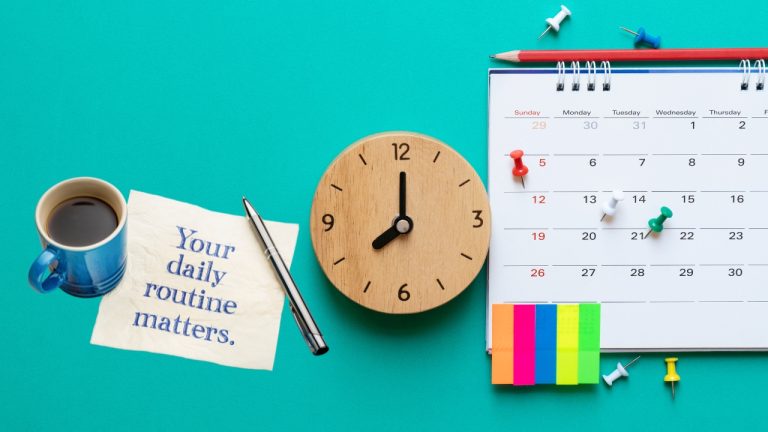Have you ever clicked through multiple quizzes while questioning how much time has gone by? You’re not alone. BuzzFeed’s “Which Disney Princess Are You?” alongside personality tests that claim to reveal your fundamental traits illustrate how viral quizzes have become an integral part of modern culture.
How do these basic online games manage to become so magnetically addictive? We will explore the psychological mechanisms and neuroscientific foundations as well as design principles that make these quizzes so captivating.
The Hook: Why Do We Start Taking Quizzes?

Our brains get a rapid dose of dopamine whenever we take a quiz which satisfies our innate sense of curiosity. Quizzes engage people by appealing to their basic human needs to understand themselves and receive social affirmation.
According to psychologist Dr. Robert Cialdini, author of Influence: According to Dr. Robert Cialdini’s book Influence: The Psychology of Persuasion people consistently seek chances to learn about themselves and present their personal insights to others. Quizzes serve as reflective tools that display our self-perception and our personal aspirations.
What drives us to initiate these quizzes? The solution comes from understanding the Zeigarnik Effect which psychologist Bluma Zeigarnik identified. The cognitive bias demonstrates that humans naturally need to find resolutions for situations that remain uncertain. The title of quizzes like “What Type of Leader Would You Be?” or “Which City Matches Your Personality?” generates an irresistible spark of curiosity by making you wonder about your potential as a benevolent queen.
The design of quizzes makes them seem impossible to resist. The combination of striking headlines and vibrant graphics along with instant rewards makes these elements impossible to overlook. Research reveals that interactive content such as quizzes achieves 39% higher sharing rates compared to traditional static articles. Platforms like BuzzFeed excel at creating click-worthy quizzes which naturally attract user engagement.
The Loop: Why Do We Keep Answering Questions?
Starting a quiz commits you to finish it regardless of question quality or repetition. Why? Quizzes utilize a potent psychological method called variable rewards to keep users engaged.
Think about slot machines for a moment. The unpredictable nature of when players will win keeps them hooked to slot machines. Every quiz question holds within it the exciting potential for new knowledge. The following response will disclose an unexpected detail about myself? Is my fate secretly intertwined with living in Paris rather than New York? This unpredictability keeps us engaged, according to behavioral economist Nir Eyal, author of Hooked: How to Build Habit-Forming Products .
Quizzes deliver instant feedback to users after each response. The meaningful impact of each decision you take derives from its contribution to your quiz’s ultimate result. According to research in Nature Neuroscience, receiving real-time feedback turns on the brain’s reward system which releases dopamine, the chemical linked to pleasure and motivation.
Each click delivers a small dopamine hit which creates a challenge to stop interacting with the product.
The Payoff: Why Do We Share Our Results?
The final showstopper arrives when you see your quiz results. Whether it tells you you’re “Bella Swan from Twilight” or “a natural-born entrepreneur,” the outcome triggers a mix of emotions: pride, amusement, disbelief, or even mild outrage. And here’s where things get interesting.
Displaying quiz results fulfills a fundamental human desire by establishing social connections. A Pew Research Center study showed that more than 64% of internet users interact with online content that lets them express their personal identity or opinions.
When you share your quiz outcome on social media you announce to your friends that your new label defines who you are and they are free to accept or dispute it.
The concept of reciprocity influences this situation as well. People who share their quiz results inspire others to complete the same quiz to examine how their answers match up. A ripple effect emerges that boosts both user engagement and viral spread. Social media platforms such as Facebook and Instagram depend on user interactions which explains why quizzes quickly gain popularity across these networks.
The Design Secrets Behind Viral Quizzes

Viral quizzes wouldn’t attract millions of users if they simply consisted of random questions. The triumph of these quizzes depends on design approaches that combine psychological principles with technological understanding.
1. Personalization Is Key
Personalization stands as one of the top strategies utilized in creating viral quiz experiences. Quizzes provide individualized results which depend on specific answers each participant provides. Each participant experiences different results depending on whether they answer “I love adventure” or “I prefer staying home.” This tailored approach creates a personalized experience that makes users feel recognized and comprehended.
2. Visual Appeal Matters
MIT research indicates that people process visual information at a rate 60,000 times quicker than textual content. Quizzes frequently utilize bright images and moving graphics to capture viewer attention. These features capture audience attention while simultaneously deepening emotional connection. Every fan would love to see a Hogwarts photo with the headline “You Belong in Gryffindor!”.
3. Timing Is Everything
Short quizzes perform best because they align with the restrictions of our limited attention spans. HubSpot data shows quizzes with under 10 questions perform better than those with more questions. Short completion times eliminate friction and maintain user interest until the end.
4. Emotional Triggers Drive Engagement
Effective quizzes harness powerful emotions such as nostalgia (“Which ‘90s Pop Star Are You?”), humor (“What Kind of Pizza Matches Your Mood?”), and aspiration (“Which Luxury Destination Should You Visit Next?”). Content that provokes strong emotions tends to spread widely because it attracts more shares.
What Happens with Quiz Addiction?
Quizzes provide entertainment but they also carry some disadvantages. Certain critics assert that quizzes become addictive because they use manipulative design techniques similar to those found in gambling applications. The relentless chase of unpredictable rewards causes compulsive behavior which prevents users from engaging in activities that have real value.
The use of basic algorithms in quizzes can result in reinforcing stereotypes and forcing users into restricted identity labels. Five simple questions that label someone as “an introvert” often fail to capture the full complexity of their personality. Young audiences face unhelpful self-perception shaping from such labels according to psychologist Dr. Carol Dweck.
Privacy concerns also loom large. Free quizzes collect user information such as IP addresses and browsing habits to sell this data to third parties or use it for ad targeting. When you plan to take your next quiz, think about whether the temporary excitement of finding out your spirit animal outweighs possible negative consequences.
The Irresistible Allure of Quizzes
So, what makes viral quizzes so addictive? These quizzes demonstrate expert insights into human psychology while showcasing digital design principles. Quizzes build supreme engagement by tapping into human curiosity while delivering unpredictable rewards and building social connections. Yet, like any indulgence, moderation is key.
Stop and think before you click on “Which Historical Figure Are You?” during your next temptation. Ask yourself: Is this activity truly enhancing my life experience or am I just pursuing another dopamine surge? You should definitely enjoy the experience but consider using a timer before starting.
The truth is that once you begin, it becomes very difficult to stop.




